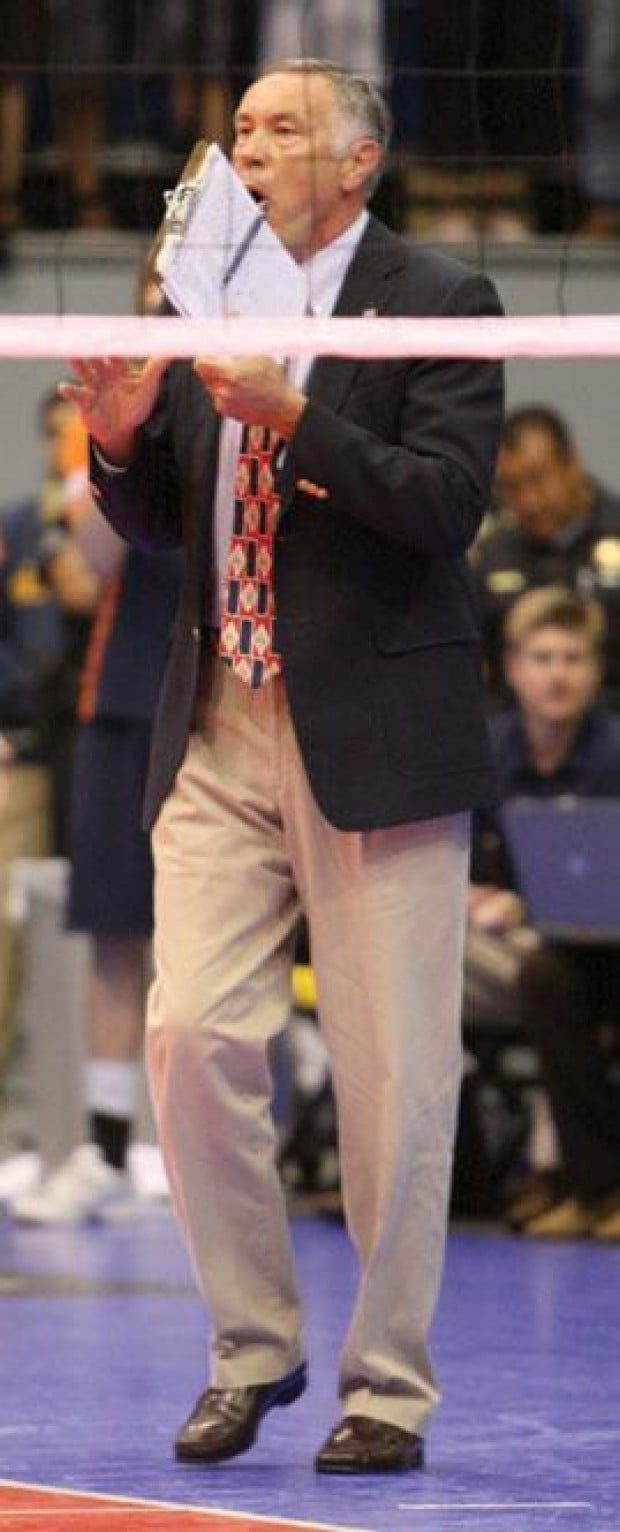
Marvy Dunphy
By Seth Rubinroit / Special to The Malibu Times
This profile on Pepperdine University’s men’s volleyball coach Marv Dunphy is one in a series on individuals in the community who are involved with the world of sports.
Men’s volleyball coach Marv Dunphy, entering his 27th season at Pepperdine University, has led the Waves to four NCAA national championships. He has coached 33 first-team All-Americans, and six different National Players of the Year. He was the NCAA Coach of the Year in 2005, and a three-time MPSF Conference Coach of the Year. Dunphy has been on five Olympic coaching staffs, and, in 1988, was the head coach of the United States Men’s Volleyball Team that won an Olympic gold medal. In 1994, he was inducted into the Volleyball Hall of Fame, and on December 17, he will be inducted into the American Volleyball Coaches Association (AVCA) Hall of Fame.
What was your reaction when you found out you were being inducted into the AVCA Hall of Fame?
I was honored and emotional. The first thing I thought about was all of the players and teams I have coached. I have been fortunate to be around some of the best players in our sport, as well as assistant coaches.
How do you get the most out of your players?
Individuals never lose their desire to be treated as individuals. When I need to teach them stuff as a group or a team it gets done, but I think the players learn the most on a one-to-one basis. I also like to practice at game speed and train in reality. The only way to motivate people is to identify standards for them to meet, and then go after those standards with everything you have. This allows you to take them where they could not take themselves. I am not a phony self-esteem guy. I do not want to make things easy and say, “Good job, good job,” then have reality hit them in the face when a good opponent is on the other side of the net.
What is it like coaching the United States Men’s National Team during the Olympics?
The methods I always use are comparable at all levels, from my youth camp to the Olympic level. It is an absolute honor to represent the United States. At Pepperdine we always put the flag on our uniform. I am pleased to live where I live, and I enjoy this country.
During the 2008 Olympics, you were a member of the coaching staff when the head coach, Hugh McCutcheon, experienced the sorrow of his father-in-law being stabbed to death in Beijing just days before the team won the Olympic gold medal. What was the mood of the team?
We were at practice, and he got the call from his wife and left. We were fortunate we had a veteran team. We were able to go forward, but it was different. In 1988, we were as happy as could be, and jumping up and down when we won. In contrast, in 2008, Hugh’s father-in-law had died and his mother-in-law was in critical condition, so it was always with us. When he came back, we tried to pretend like it was business at usual, but everybody knew what had taken place.
What do you like to do besides coaching?
I like to work in my yard. I also enjoy seeing how the great coaches coach. I look at coaches from all sports and see how they act and handle situations that are less than perfect.
Your daughter Alexandra is the director of men’s volleyball operations for the Waves. What is it like to work so closely with your daughter?
It is one of life’s pleasures. She is organized, and has a good head on her shoulders. But, there will be times when she rolls her eyes and says, “Dad!”
How will the team replace Paul Carroll, who graduated after being named the 2009 National Player of the Year, a three-time All-American first team member and a four-time All-MPSF selection?
Oh boy. Statistically, he was half of all of our good statistics. Guys like him do not come along every day. I think the load will have to be shared by several guys. We do not have another Paul Carroll in the wings.
Which returning players do you expect to make a large impact next season?
I anticipate that [outside hitter] J.D. Schleppenbach [who had season-ending shoulder surgery last season and now has a knee injury] will be healthy. One guy who flies under the radar is Sean Grubbs, the libero. He had to carry a big load last year, and he will be a big part of this team. Kasey Crider, the setter, has another year under his belt. I expect him to be even better this year. [Outside hitter] Cory Riecks will have to carry a large load. We have a freshman coming in, Maurice Torres, who plays the same position as Paul Carroll, so he will have big shoes to fill.
